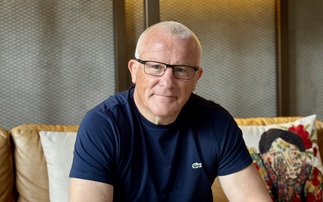Industry Voice: Biotech companies are increasingly pioneering groundbreaking therapies for diseases with high unmet medical need. Investing in these innovation leaders is a hallmark of BB Biotech'sinvestment philosophy.
One of the keys to successful investment in the biotech sector is the early identification of companies that will go on to generate markets worth billions with new blockbuster therapies. Unmet medical need is vast and the regulatory conditions for market-ready innovative products have improved continuously in the last number of years. Under Scott Gottlieb, the new director of the United States Food and Drug Administration (FDA), the regulatory agency for the world's largest healthcare market has been pushing to implement the "21st Century Cures Act", a law passed more than a year ago to promote competition and simplify approval processes. The new law marks the next step forward from the "breakthrough therapy designation" introduced in 2012 to improve the regulatory process of new drugs. The European Medicines Agency (EMA) similarly paved the way with its PRIME (PRIority MEdicines) regulatory initiative launched in March 2016.
A new generation of medicines
The last three years have seen a surge in the launch of new medicines. 46 new drugs were approved in 2017, the largest number since the landmark year of 1996. Most of the newcomers hail from biotech labs. Four medical areas that play a key role in medical and commercial terms are oncology, orphan diseases, metabolic diseases and neurology. New products coming to market in each of these areas have the potential to achieve blockbuster status. Healthcare services and providers will find it difficult to deprive patients of these novel products on cost grounds based on the high-unmet medical need with no or only symptomatic treatment options in many diseases.
One of the newer technologies based on RNA-based antisense oligonucleotides (ASOs) is now available in the orphan diseases area. These agents have the power to switch off or at least substantially, downregulate the translation of certain genes believed to cause disease.
The antisense pioneers
Antisense drugs are being developed in a variety of medical areas (cancer, orphan diseases, cardiology, liver diseases, and neurology). One of the pioneers is US biotech firm Ionis Pharmaceuticals. More than 30 drug candidates tested in preclinical studies and clinical trials by Ionis itself or following outlicensing to partners originated from the company's proprietary technology platform. The first product, Kynamro, was approved in 2013 for use in a rare genetic subpopulation of patients with high blood cholesterol (HoFH). A second and commercially more viable product, Spinraza, has been available in the USA and Europe since 2017. Spinraza is approved for the treatment of spinal muscular atrophy, a rare and devastating neuromuscular disease in infants. With sales of USD 884 mn in its first year, Spinraza is one of the most successful products ever to be launched in the area of orphan diseases.
Ionis faces competition from Alnylam, a company that is taking a similar approach with its RNA interference technology, again designed to knock out disease-causing genes by deactivating mRNA. In competition to Ionis inoterson, Alnylam is poised to market a drug that treats ATTR amyloidosis, patisiran, with approval decisions in the USA and Europe expected for August.
Biotech firms Avexis and Voyager Therapeutics are just beginning clinical development of their gene therapies. Avexis (recently acquired by Novartis for USD 8.7bn) uses adeno-associated virus vectors to transmit genetic material into the body's cells. A product to treat spinal muscular atrophy is still in the early stages of clinical development. The same applies to Voyager's candidate, an agent designed to stabilize the neurotransmitter in Parkinson's disease that converts dopamine, which together with implanting of deep brain stimulation devices is the current standard of care in the treatment of Parkinson's.
The big breakthrough in cystic fibrosis
Vertex Pharma is further ahead. The US biotech firm was granted approval in February for its third product to treat cystic fibrosis, a condition associated with a shorter lifespan if left untreated. If a triple combination gets the green light in 2019, Vertex expects to be able to treat 90% of cystic fibrosis patients worldwide with its medicines. Vertex earned revenues in excess of USD 2.1 bn in 2017 with its already approved products Kalydeco and Orkambi.
Cellular therapy revolution
A number of biotech companies in immuno-oncology have seen even more stellar stock market runs recently. 2017 was the big breakthrough year for CAR-T therapies. Novartis' Kymriah was approved in September 2017 to treat ALL, a type of leukemia, and in November Yescarta was approved, a drug to treat non-Hodgkin's lymphoma. Yescarta is being commercialized by Gilead Sciences and was originally developed by Kite Pharma. The next product based on CAR-T therapy will already be up for approval this year. It has been developed by Juno Therapeutics. Both of these BB Biotech holdings focusing on cell-based therapies were acquired by large cap biotechnology companies. BB Biotech continues to enjoy and anticipates attractive exits such as Kite - sold to Gilead for USD 12 bn in 2017, and Juno - sold to Celgene for USD 9 bn in January 2018 The Swiss Investment trust invests in companies in the fast growing market of biotechnology and is one of the world's largest investors in this sector with 25 years of experience.
Learn more about BB Bitoech
Disclaimer
Bellevue Advisors LLP is an appointed representative of Mirabella Advisers LLP, which is authorised and regulated by the Financial Conduct Authority. This advertisement is directed at professional clients and eligible counterparties as defined by the FCA in the UK only. Past performance is not indicative of future results.












